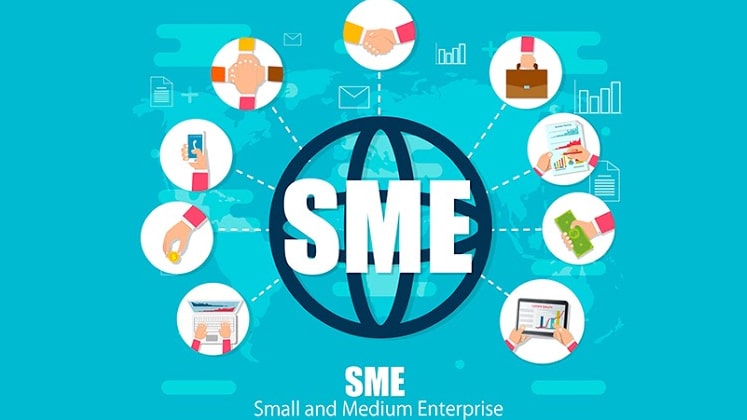ALIF
Published:2020-12-14 00:28:35 BdST
Tackling Post-Corona Challenges: SMEs need to be prioritised
The SME sector can bring real change in the country’s development and make the economy more vibrant as there is a huge ready manpower suitable for the sector, experts have said.
However, many genuine SME entrepreneurs fail to get loans.
According to Bangladesh Bank’s (BB’s) instructions, 20 percent of all bank loans must go to SMEs. But in reality, the entrepreneurs are not getting that amount of loans due to lack of proper policy support and monitoring the implementation, they said.
“Around one-fourth of the country’s GDP comes from the SMEs and these SMEs are going to be the growth engine of the country if they get proper policy support,” former BB governor Dr Atiur Rahman said.
To successfully tackle the post-COVID-19 pandemic challenges, there is no alternative to taking pro-active policy instead of the business as usual policy, he said.
He also noted that since the rural economy will continue to remain vibrant overcoming the shock of Covid-19, there is a need for giving more attention to the SMEs in urban areas.
“There is no denying that the country has a huge possibility in the SME sector. If the government or Bangladesh Bank can ensure loans for the SMEs, there would be a huge opportunity to reduce unemployment,” Dr Atiur said.
The former Bangladesh Bank governor also suggested providing more stimulus to the SMEs, increasing their loan-repayment period to two years from the existing one year as well as adopting time-befitting fiscal policy and providing cash incentives to successfully tackle the second wave of the COVID-19.
India has allotted 30 percent total stimulus package for SMEs while Malaysia gave 28 percent and Bangladesh allotted only 20 percent to SMEs, Dr. Atiur said.
Research Director of CPD Dr Khondaker Golam Moazzem said SMEs should not be considered as a single sector, rather SMEs are within all sectors. “SMEs should be viewed from the supply-chain point.”
He also said that the country needs commercially viable SMEs for which there is a need for creating more space.
Senior research fellow of BIDS Dr Nazneen Ahmed said SMEs is not a separate sector while the existence of SMEs is there in every sector.
She said there has been a clear shift towards a more proactive policy for identifying the dynamic components of the sector and nurturing them with adequate infrastructure, finance, technology and marketing support to access the export market and accelerate growth.
“The SMEs role in terms of production, employment generation, contribution to exports and facilitating equitable distribution of income is very critical. Yet the potential of the SMEs has not been fully utilised in Bangladesh,” she added.
Analysts say it is vital to provide SMEs appropriate policy support to develop the sector and increase SMEs’ contribution to the country’s GDP. The SMEs are unable to thrive in Bangladesh because of some major challenges like lack of fiscal incentives, management problems, access to finance, policy inconsistency etc, they say.
As of now, the contribution of SMEs to the gross domestic products (GDP) is only 20.25 percent in Bangladesh. A study conducted recently revealed that the proportion of SMEs is 80 percent in Bangladesh among all enterprises, while it is 97.60 percent in India, 99 percent in China, 99.70 percent in Japan and 60 percent in Pakistan.
Bangladesh has 17,384 micro-enterprises, 15,666 small ones, 6,103 medium and 3,639 large scale enterprises where a total of 5.02 million people are engaged, says the study.
There are some problems in the SME sector. According to the study, if these can be resolved through methodical measures, the country’s GDP will get a significant contribution from this sector.
Some bankers admitted genuine SME entrepreneurs often fail to get loans. As per the BB’s instructions, 20 percent of all bank loans must go to the SMEs. But in reality, the entrepreneurs are not getting that amount of loans.
Unauthorized use or reproduction of The Finance Today content for commercial purposes is strictly prohibited.


